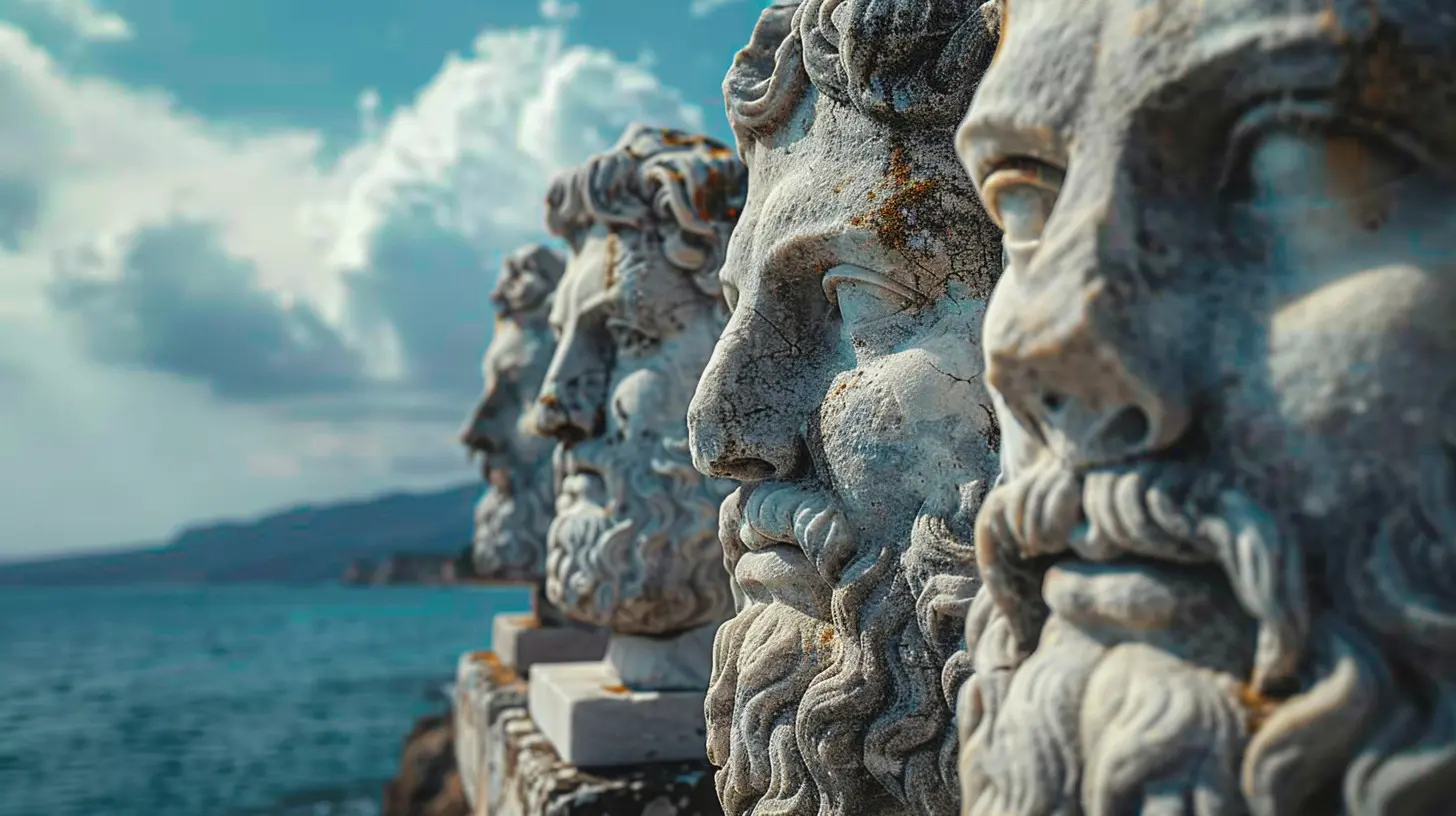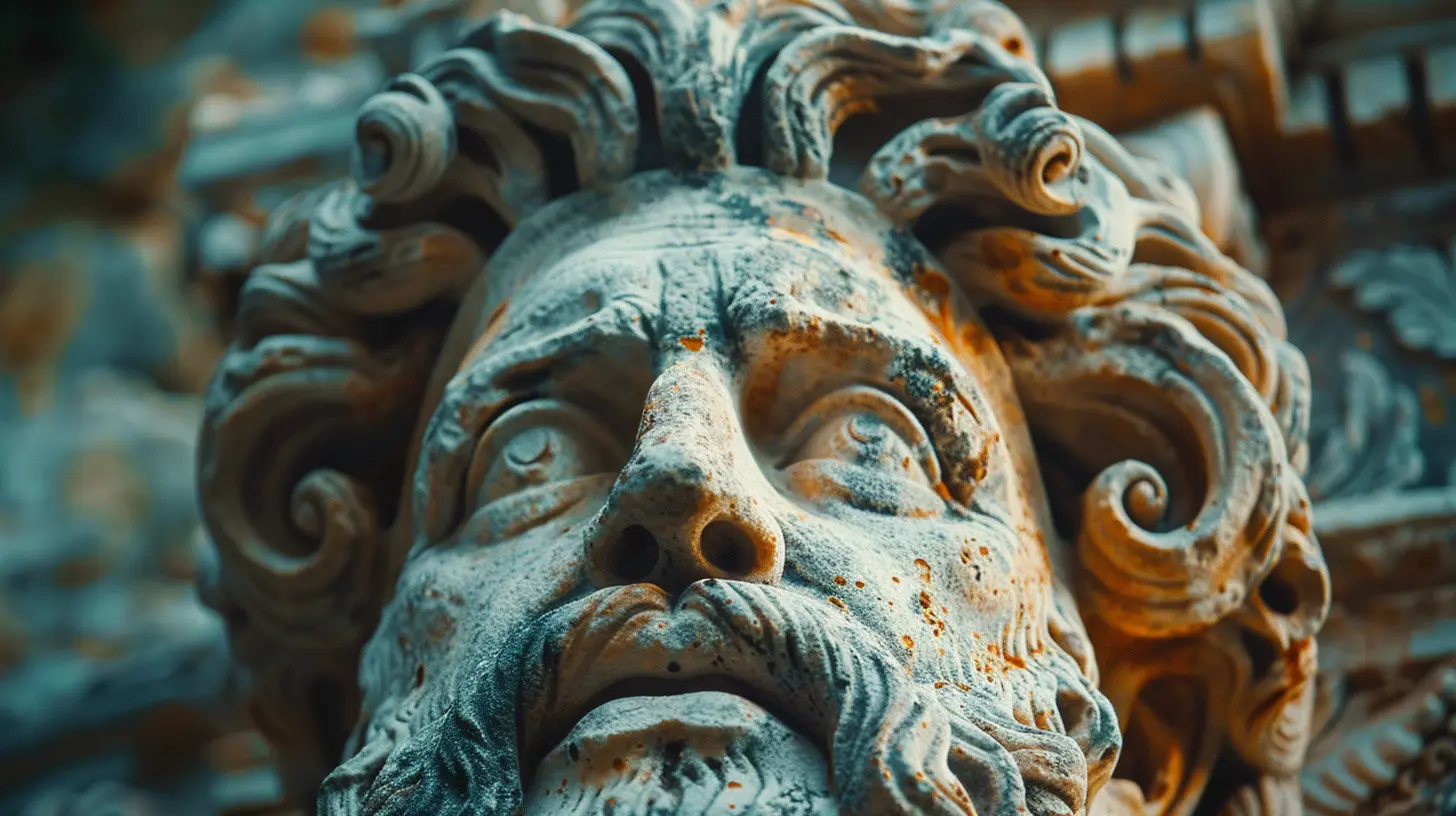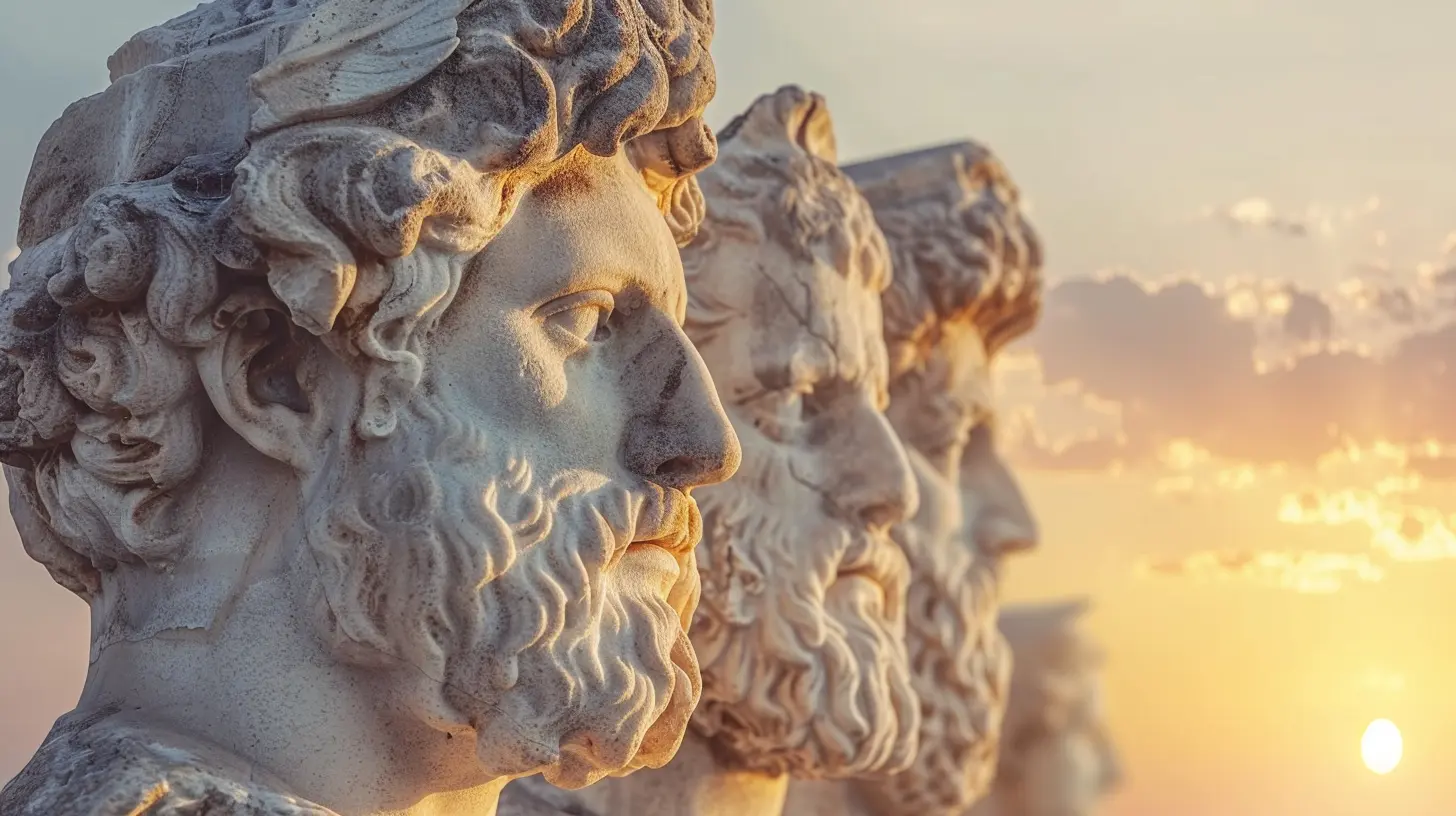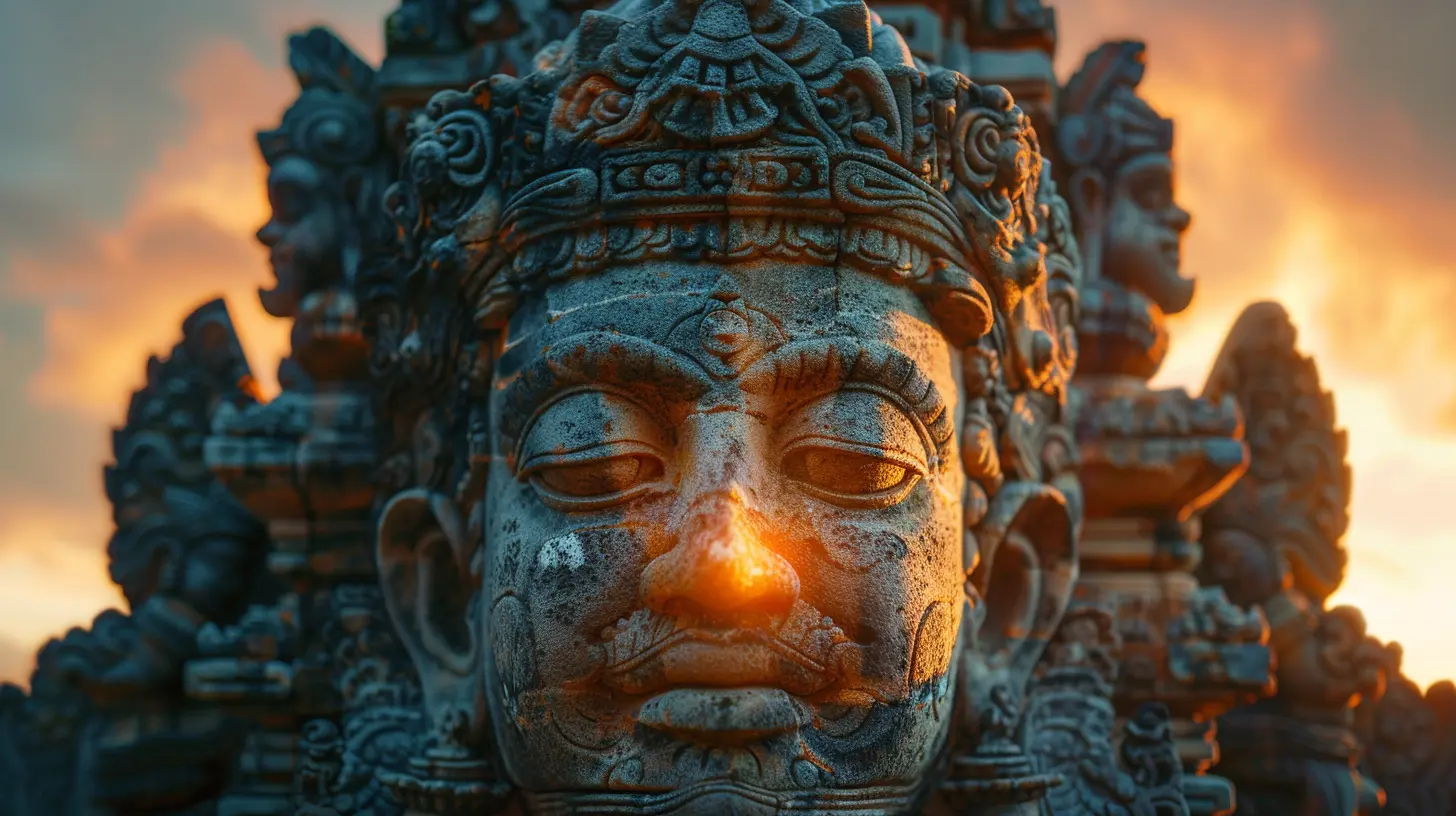The Role of Mythology in Shaping National Identity
31 August 2025
Have you ever wondered how countries come to feel like “a people”? How a collection of individuals, often with different languages, regions, and even personal values, somehow unite under the same flag and call themselves a nation? Well, here’s the twist—it’s not just politics, history, or geography that creates that bond. A massive, often underappreciated force is mythology.
Yes, you heard that right—those ancient stories about heroes slaying monsters, gods creating worlds, or prophetic visions of glory. They’re more than bedtime tales or Hollywood inspiration. Mythology has been a silent architect in building how nations see themselves. So, get comfy, and let’s explore how mythology has helped shape national identities all over the world. 
What Is Mythology, Really?
At its core, mythology is a collection of stories that a group of people believe (or once believed) to be true. These stories explain the world, celebrate values, and help answer the big "why" questions—why we exist, why we suffer, and why our land is sacred or destined for greatness.But mythology isn’t just about fantasy. It’s deeply rooted in a society's psychology. It’s a cultural mirror reflecting what a community holds dear—bravery, wisdom, sacrifice, loyalty. Kinda sounds like the ingredients of a national identity, right?
Mythology: The Original National Branding
Think of mythology as a nation's first marketing campaign. It tells stories that define who the people are, where they came from, and what makes them unique.Take ancient Greece, for example. The tales of Achilles, Hercules, and Athena weren't just mythological fluff. They embodied Greek values—valor, intellect, beauty, and resilience. These stories gave Greeks a shared sense of superiority and destiny, fueling their cultural pride.
In the same way, Norse mythology helped the Vikings view themselves as fearless, destined adventurers favored by powerful gods like Odin and Thor. Even today, countries in Scandinavia wear those myths proudly.
Myths are like invisible threads. They run through a nation's literature, national holidays, monuments, and even currency, stitching together a sense of unity and purpose.
How Mythology Builds a Shared Identity
Let’s break this down. Mythology helps to build a national identity in a few powerful ways:1. Creating a Glorious Past
People love to feel they come from greatness. That’s why nations often root their origin stories in mythology.Look at Rome. According to legend, the city was founded by twin brothers Romulus and Remus—raised by a she-wolf and destined by the gods. This wasn’t just a cool tale; it justified Rome’s imperial ambitions and divine destiny.
When people believe their ancestors were chosen, heroic, or god-like, it naturally boosts national pride. And pride? That’s the glue of national identity.
2. Promoting Core Values
What do you stand for as a people? Mythology answers that.For instance, Japanese mythology emphasizes honor, nature, and harmony. These themes echo in Japan’s national character, from its etiquette to its traditional arts.
The stories told in myths aren’t random. They’re value-packed narratives that teach people what’s admired and what’s punished. Over time, these values become part of the national DNA.
3. Uniting Diverse Communities
Most modern nations are melting pots of cultures, religions, and languages. Mythology serves as common ground.India is a perfect example. With its vast cultural diversity, its mythological tales from the Mahabharata or Ramayana offer shared heroes and morals that transcend regional divides. These stories give millions of people, despite their differences, a sense of belonging to the same cultural family.
Famous Nations and Their Mythological Identities
Let’s take a little tour around the world and see how mythology isn’t just ancient history—it’s national identity dressed in epic costumes.🇬🇷 Greece: The Legacy of Olympus
Greece isn’t just a country—it’s the birthplace of Western mythology. Greek myths didn’t just shape Greek identity; they influenced philosophy, architecture, politics, and storytelling around the world.To this day, modern Greeks carry pride in their mythological past. Whether it's the strength of Hercules or the wisdom of Athena, these archetypes still stand as proud national symbols.
🇮🇳 India: An Epic Civilization
Indian mythology is massive, detailed, and deeply entwined with its national psyche. Stories of Krishna, Shiva, and goddess Durga aren’t just religious—they're cultural cornerstones.Even in politics and cinema, mythological themes dominate. The epic Mahabharata teaches about duty, family loyalty, and sacrifice—values India holds dear.
🇺🇸 The United States: The American Dream as Modern Myth
Okay, the US may not have gods with thunderbolts, but make no mistake—it’s got myths. The Founding Fathers? Mythologized. The idea that anyone can "make it big" through hard work? That’s the American Dream, a modern-day legend.These stories paint Americans as brave, freedom-loving pioneers. The Wild West itself has been mythologized into a tale of rugged individualism and destiny.
🇳🇿 New Zealand: Myth Meets Nature
The Māori people of New Zealand have passed down rich myths about gods, creation, and the land. Tales of Māui fishing up North Island from the ocean are more than charming—they're part of national identity.Even the country’s tourism and branding lean heavily into these myths, with the Haka dance and Māori symbols integrated into official culture.
Modern Echoes of Ancient Myths
Think mythology is just for ancient times? Think again. Modern nations still lean into mythical energy to rally people, commemorate events, or inject meaning into national symbols.Ever noticed how many nations have flags with ancient symbols? Or how governments use myth-inspired figures in statues, speeches, and holidays?
Even national anthems often borrow language that feels mythic. Phrases like “land of the brave”, “motherland”, or “land of the free” are emotionally loaded, almost otherworldly.
Mythology as a Soft Power Tool
Ever heard of “soft power”? It’s the cultural influence one nation has over others—through media, ideas, art, etc. Mythology becomes a powerful tool here.Countries like China, Japan, and India have reintroduced mythological themes into global cinema and literature. Disney movies use ancient mythology regularly—think Hercules, Moana, and Raya. These stories allow nations to subtly promote their culture, values, and identity.
When the world falls in love with your stories, they’re not just being entertained—they’re being introduced to your soul.
Tourism and Mythology: A Match Made in Heaven
Now, here’s where it gets fun. Mythology and national identity aren’t just academic ideas. They’re HUGE drivers of tourism.Tourists are often drawn not just to places, but to the stories behind them. People don’t just visit Athens to see ruins—they go to walk in the footsteps of gods. Tourists flock to Egypt to trace the world of pharaohs and pyramids.
Mythology transforms a destination into a living storybook. It adds emotional magic to the physical landscape.
Tourist boards now actively lean into national myths. Ireland promotes legends of leprechauns and Celtic warriors. Iceland taps into Norse sagas about elves and trolls. It’s storytelling with a passport.
Why This All Still Matters
In a world of globalization, where lines blur and cultures mix, you’d think national identity would weaken. But it's actually made people cling harder to the stories that define them.Mythology grounds us. It reminds us of our spiritual address—not just where we live, but where our roots are.
Nations that embrace their mythology don’t live in the past; they live with a strong compass. They offer their people a sense of continuity in a rapidly changing world.
And honestly, in times of crisis, those ancient stories remind us of resilience, unity, and purpose. They're the emotional armor of a nation.
Can New Myths Be Created?
Absolutely. Mythology is alive.Every generation tweaks the tales, adds modern heroes, and reshapes identities. Pop culture, war heroes, sports legends—even astronauts—can all become mythological figures over time.
Your country’s next great myth may not be a 1,000-year-old tale. It might be unfolding right now.
Final Thoughts: Don’t Dismiss the Old Stories
So, the next time you hear a myth—whether it's about gods, dragons, or divine lands—don’t roll your eyes. That story might just be a key thread in the tapestry of a nation's soul.Mythology isn’t nonsense. It’s narrative gold. It binds, it teaches, it celebrates, and most of all—it unites.
We don’t just live in nations. We live in stories. The better we understand them, the more connected we feel to the land, to each other, and to something bigger than ourselves.
all images in this post were generated using AI tools
Category:
Cultural ExperiencesAuthor:

Winona Newman
Discussion
rate this article
2 comments
Thea Barrett
This article astutely highlights how mythology serves as a cultural cornerstone, weaving narratives that both unify and distinguish national identities. Yet, it would benefit from exploring the potential for mythological narratives to evolve.
November 29, 2025 at 5:11 PM

Winona Newman
Thank you for your insightful comment! I appreciate your suggestion to explore the evolution of mythological narratives, and I agree that this would enhance the discussion of their dynamic role in shaping national identities.
Kenzie Blevins
This article adeptly highlights how mythology serves as a powerful tool in constructing national identity. By intertwining historical narratives with cultural values, it fosters a sense of unity and belonging. However, it’s essential to also consider the potential exclusionary effects of such mythologization on diverse communities.
August 31, 2025 at 2:59 PM

Winona Newman
Thank you for your insightful comment! I completely agree that while mythology can unify, it’s crucial to recognize its potential to marginalize diverse communities. Balancing national identity with inclusivity is essential.


